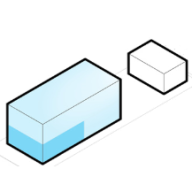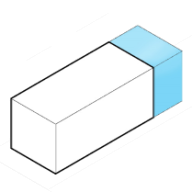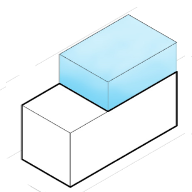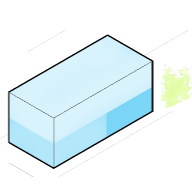Development Opportunity for
286 27th Ave, San Francisco, CA
145% Potential
($1,946,403 Untapped Value)
This property is a Dwelling designated as a Single Family Residential unit on a lot of 1,746 sqft. It has 2 stories, 6 rooms, 3 bedrooms, 2 bathrooms. Property has a total as-built area of 3,303 sqft of which 2,809 sqft is the conditioned area assessed for property taxes.
Development Options for
286 27th Ave, San Francisco, CA
What are the local zoning regulations for 286 27th Ave ?
RM-1 (RESIDENTIAL- MIXED, LOW DENSITY)
San Francisco municipal code permits up to three units per lot or more.
These Districts feature a blend of dwelling types similar to RH Districts but include a substantial number of apartment buildings, enhancing the diversity of unit sizes and structures. While the overall unit density remains low, the buildings are characterized by moderate scale and segmentation, with separate entrances for units or groups of units. Outdoor space is typically available at both ground and upper levels, regardless of the age and form of structures. Shopping facilities and transit lines are conveniently located nearby, and these districts often incorporate nonresidential uses to meet the needs of residents.
Permitted Residential Uses: ADU and JADU, intermediate length occupancy use, single room occupancy, dwelling units, student housing, senior housing, group housing and homeless shelter.
Permitted Non-Residential Uses: Agriculture, passive outdoor recreation, child care facility, public facilities, and residential care facility.
What is the maximum height for 286 27th Ave ?
40-X
No portion of a dwelling can exceed a height of 40 feet, except that the permitted height has to be reduced to 35 feet where the average ground elevation at the rear line of the lot is lower by 20 or more feet than at the front line. The height is measured by taking a point at the centerline of the building or, where the building steps in relation to a street that is the basis for height measurement. Separate points need to be taken at the centerline of each building step. The upper point is the highest point on the finished roof in the case of a flat roof, and the average height of the rise in the case of a pitched or stepped roof.
What are the ADU regulations for 286 27th Ave ?
ADU eligible
Accessory Dwelling Units (ADUs), also called secondary units, in-law units, or cottages, are units added to existing and new residential buildings. Adding an ADU to your property can provide several benefits, such as providing housing for family members, simplifying your lifestyle, and increased financial flexibility.Learn more about building ADU in this article
What neighborhood is 286 27th Ave located in?
Lake Street, San Francisco
"This is one of the best neighborhoods in the City, if the the Bay. It is safe, friendly and full of beautiful homes." People who live here love it here. While this neighborhood is further removed from the central core of the City it still has a tight-knit feel. The streets feel broader and wider with a large numbers of 2-unit buildings that are either condos or income properties; large apartment buildings, most with garages on the street level. As you get closer to the Presidio and to Land’s End you’ll find some large, if not stunning houses. Most structures here are stucco and older and you’ll find the occasional TIC units.




